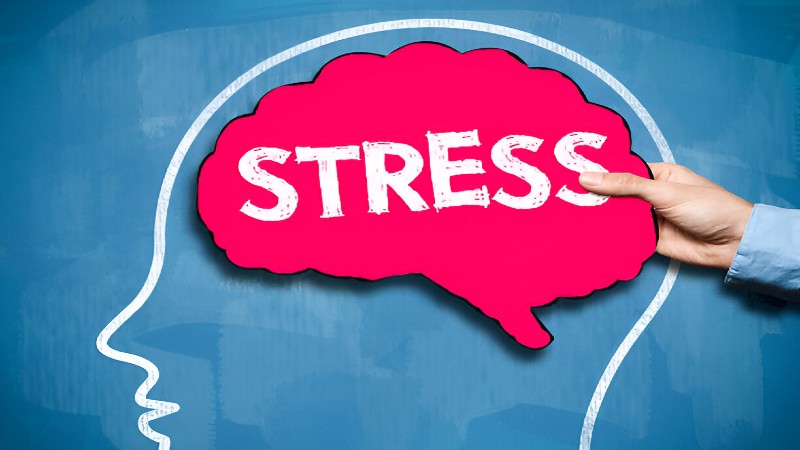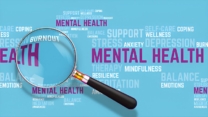
Chronic Stress: Alarming Health Impacts You Must Know
In today’s fast-paced world, chronic stress has become a silent intruder—disrupting lives, damaging health, and eroding well-being from the inside out. Unlike short bursts of stress that can sharpen focus and fuel productivity, persistent stress operates stealthily, gradually impacting multiple systems in the body. Left unchecked, it doesn’t just wear you down emotionally—it actively undermines your physical health.
What Is Chronic Stress and Why Is It Dangerous?
Chronic stress refers to a continuous state of psychological pressure that persists over a long period. Whether caused by job insecurity, financial strain, family responsibilities, or unresolved trauma, this kind of stress causes the body to remain in a state of heightened alertness—constantly releasing stress hormones like cortisol and adrenaline.
This extended stress response disrupts the body’s normal regulatory functions, placing immense strain on nearly every system—musculoskeletal, cardiovascular, gastrointestinal, endocrine, nervous, and reproductive—often without immediate symptoms, making it all the more dangerous.
The Physiology of Stress
When faced with stress, the brain signals the hypothalamic-pituitary-adrenal (HPA) axis, prompting the adrenal glands to release cortisol. While cortisol is essential for handling emergencies, prolonged elevation leads to dysfunction in numerous systems.
| System Affected | Impact of Chronic Stress |
| Musculoskeletal | Constant muscle tension, back pain, tension headaches |
| Cardiovascular | High blood pressure, increased risk of stroke and heart disease |
| Respiratory | Worsened asthma, shortness of breath, panic attacks |
| Endocrine | Hormonal imbalances, disrupted metabolism |
| Gastrointestinal | IBS, acid reflux, constipation/diarrhea, appetite changes |
| Nervous System | Anxiety, insomnia, cognitive decline |
| Reproductive (Male) | Low testosterone, erectile dysfunction, decreased sperm quality |
| Reproductive (Female) | Irregular cycles, worsened PMS, fertility issues, menopausal symptoms |
Chronic Stress and Hormonal Chaos
One of the most insidious effects of chronic stress is hormonal imbalance. When cortisol is elevated for prolonged periods, it interferes with other hormones including:
- Thyroid hormones, leading to fatigue and weight gain.
- Sex hormones like estrogen, progesterone, and testosterone, leading to libido changes, fertility issues, and menstrual irregularities.
- Insulin, increasing the risk of Type 2 diabetes.
Notably, women may experience more intense premenstrual symptoms, irregular periods, or worsened menopausal symptoms, while men may suffer from decreased testosterone and sperm quality.
The Vicious Cycle of Stress and Sleep Disturbance
One of the first signs of chronic stress is poor sleep. Stress causes hyperarousal—a heightened state of alertness that makes it difficult to fall or stay asleep. Unfortunately, sleep deprivation itself raises cortisol levels, creating a self-perpetuating cycle of exhaustion, irritability, and poor mental function.
The Brain-Gut Connection
Your gut and brain are in constant communication via the gut-brain axis. Chronic stress alters the gut microbiota, weakens the intestinal barrier, and makes the gastrointestinal tract more sensitive to pain and discomfort. Symptoms such as:
- Bloating
- Cramping
- Indigestion
- Alternating diarrhea and constipation
…are commonly reported in individuals with Irritable Bowel Syndrome (IBS) and other functional gastrointestinal disorders—many of which are now strongly linked to chronic stress.
Chronic Stress and Hormonal Chaos
High cortisol levels impair immune responses by:
- Reducing lymphocyte production
- Slowing wound healing
- Weakening the body’s ability to fight infections
Chronic Stress at a Crisis Point
In the UK, chronic stress is no longer just a health issue—it’s a societal epidemic:
- 74% of adults felt overwhelmed by stress in 2023 (Mental Health Foundation)
- Over 800,000 workers experienced work-related stress, anxiety, or depression in 2022 (HSE)
- The cost of living crisis, job insecurity, and burnout are leading contributors
Three Practical Ways to Manage Stress
Identify Your Stress Triggers
Keep a daily log of situations that spike your stress. This self-awareness allows you to avoid, reduce, or better respond to these stressors.
Adopt Lifestyle Interventions
Incorporate proven stress-reducing habits like:
- Daily physical activity
- Mindfulness and meditation
- A healthy, anti-inflammatory diet
- Proper sleep hygiene
Track Your Cortisol and Hormones
Monitoring stress biomarkers offers clarity and actionable insights. UK-based services like Vitall provide at-home cortisol test kits, allowing users to assess how stress is affecting their body and make informed health decisions.
Why Testing Your Stress Levels Matters
Stress is invisible—but its damage is not. Regularly testing your cortisol, thyroid, and sex hormone levels can help catch imbalances early and prevent long-term health consequences. As the old saying goes:
You can’t manage what you don’t measure.
Conclusion
Chronic stress is not just a mental or emotional burden—it’s a full-body disruptor. From the heart to the gut, from your sleep to your fertility, its reach is vast and often underestimated. But with the right tools—awareness, lifestyle changes, and hormone testing—you can reclaim control over your health.
Take action today, Start small, stay consistent, and consider testing your stress levels to gain deep insights. Your future health depends on what you do now.
Frequently Asked Questions (FAQs)
What is chronic stress and how is it different from acute stress?
Chronic stress is prolonged psychological or emotional stress that persists over weeks or months, unlike acute stress, which is short-term and situational.
How does chronic stress affect hormone levels?
It elevates cortisol, disrupts thyroid function, and affects sex hormones like testosterone and estrogen, leading to fatigue, weight gain, and libido issues.
Can chronic stress really weaken the immune system?
Yes, high cortisol levels suppress immune response, making the body more vulnerable to infections, slower wound healing, and chronic inflammation.
Does chronic stress impact digestive health?
Absolutely. It can worsen IBS, cause bloating, indigestion, constipation or diarrhea due to altered gut-brain communication and microbiome changes.
What are the signs that chronic stress is affecting my body?
Common signs include fatigue, sleep issues, mood swings, muscle tension, digestive problems, reduced libido, and frequent illnesses.
How can I naturally manage chronic stress?
You can reduce stress with mindfulness, physical activity, sleep hygiene, balanced nutrition, and journaling. Testing your hormone levels also helps.












